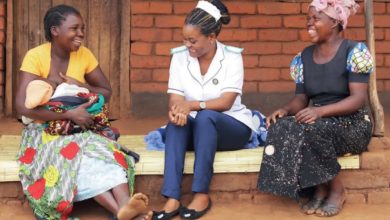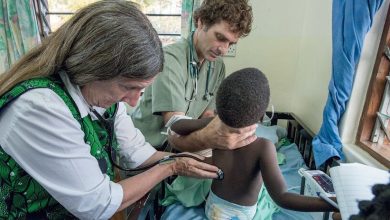Stigma haunts people with HIV
Despite a progressive law that protects their well-being and rights, persistent stigma and exclusion deprive people living with HIV of dignity and basic opportunities.
Discrimination includes pervasive rejection, exclusion from employment and barriers to vital support services, including food aid.

This underscores rising calls for a collective shift in societal attitudes and inclusive policies to support people living with the virus that causes Aids.
A 22-year-old woman, from Traditional Authority Tsabango in Lilongwe, sells clothes in surrounding markets.
She dreams of expanding her business, but customers shun her because of her health condition.
“When people discover my HIV status, they stop buying from me,” Agnes says. “This affects my earnings and plans. Some call me degrading names.”
From business spaces to healthcare facilities, stigma and discrimination take a toll on the young woman’s mental health, pushing her to life-saving treatment.
“I feel disgraced and it sometimes gets so overwhelming that I stop seeking life-saving treatment,” she says.
Her plight mirrors the struggles of many people living with HIV in Malawi.
The HIV and Aids Prevention and Management Act outlaws all forms of discrimination, upholding the constitutional right to equal treatment.
According to section 2, it includes any distinction, exclusion or restriction based on the actual or perceived HIV status of a person which affects, impairs or nullifies one’s recognition, enjoyment or exercise of human rights and fundamental freedoms in the political, economic, social, cultural, civil or any other field.
Section 6 imposes a K5 million fine for any person found guilty of HIV-related discrimination, with organisation liable to pay double as much.
Social exclusion fuels numerous challenges from economic hardships to low access to healthcare services one needs to enjoy a quality life.
The government has rolled out several initiatives to support vulnerable groups, but people with HIV feel sidestepped.
Exclusion from community activities and food aid exacerbates their plight as the effectiveness of antiretroviral drugs hinges on a nutritious diet.
In Machinga, a 58-year-old bemoans the lack of inclusive support programmes for people living with the virus that attacks body defences to opportunistic diseases.
“We cannot singlehandedly win the fight for equal treatment as the nation seems not bothered to take action that will ensure PLHIV are not forgotten,” she says.
Malawi Network of People Living with HIV and Aids (Manet+) executive director Lawrence Khonyongwa says the skewed distribution of food aid has been a long-standing concern among people diagnosed with the virus.
The Manet+ official says the selection of beneficiaries for many social programmes, including food aid, ignores their unique challenges, which require nutritious diets.
“Government should consider revisiting national policies to include people with HIV among vulnerable groups as it were in the past. They are no longer included in these food relief programmes,” Khonyongwa explains.
The call comes amid worsening hunger.
More than 5.7 million require urgent food aid in the lean season, according to the Malawi Vulnerability Committee.
Persons with HIV require nutritious bites for the life-prolonging drugs to work.
According to the National Aids Commission, 927 310 of the 991 600 Malawians with HIV were taking life-prolonging drugs by December 2023. These included 13 875 new infections, the commission reports.
A total of 852 300 who were on HIV treatment had their viral load suppressed to a level where it could neither be detected nor transmitted, but 11 265 succumbed to opportunistic infections that thrive on a breakdown in body immunity worsened by hunger and non-adherence to the daily dosage.
While access to nutritious food is part of the HIV treatment toolkit, Department of Disaster Management Affairs spokesperson Chipiliro Khamula says the current food distribution criteria do not specifically prioritise people with HIV, but focus on general vulnerability.
“When choosing beneficiaries, we only focus on people with chronic illness, the elderly and persons with disabilities. They are all given some priority,” he said.
Key Populations Integrated HIV and Human Rights Project, a 10-month initiative by Community Health Rights Advocacy (Chera) with support from the UNDP, educates people living with HIV to demand their rights and inclusion.
Chera programmes manager Alex Kaomba says empowering people with HIV to defend, claim and enjoy their rights boosts efforts to combat stigma and discrimination.
“Once they know their rights, no one can infringe upon them under any circumstances,” she says.
Agnes says the struggles of people living with HIV, including stigma and discrimination, demand comprehensive and sustained action.





